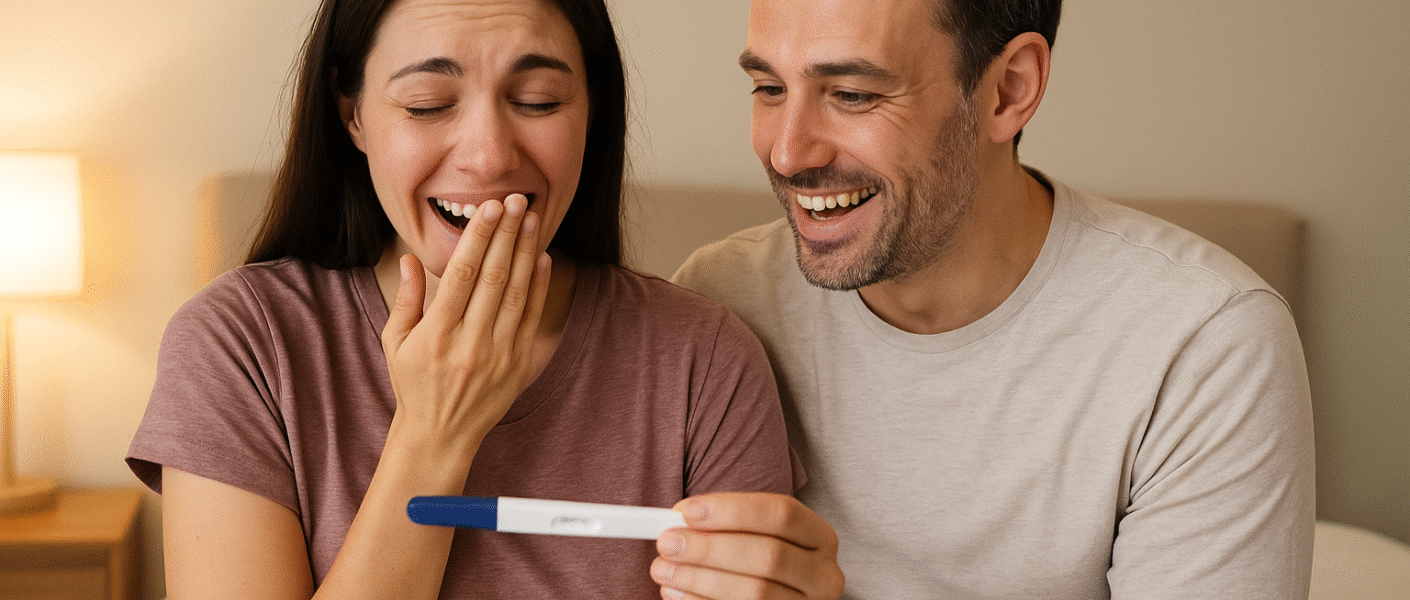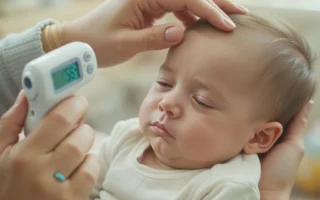What Are the Early Signs of Pregnancy? Finding out you’re pregnant can be one of the most emotional and life-changing moments of your life. Whether you’re actively trying to conceive or the thought just crossed your mind, recognizing the early signs of pregnancy can help you take the next steps toward confirming it and caring for yourself and your baby.
In this post, we’ll explore the most common early pregnancy symptoms, explain why they happen, and offer supportive advice on what to do if you think you might be expecting.
When Do Early Pregnancy Symptoms Start?
Early pregnancy symptoms can appear as soon as a few days after conception, although most women begin to notice changes around the time of a missed period.
Typical Timeline:
- 1–2 weeks after conception: Some women report subtle symptoms.
- 4 weeks: Around the time of a missed period, symptoms are more common.
- 6 weeks and beyond: Hormonal changes intensify, making symptoms more noticeable.
However, every woman is different—some may feel symptoms early, while others may not notice anything until much later.
What Are the Most Common Early Pregnancy Symptoms?
Here are some of the earliest and most frequently reported signs:
Missed Period
Often the first and most obvious sign. If your cycle is regular and you miss your period, it’s time to take a pregnancy test.
Tender or Swollen Breasts
Rising hormone levels can cause breast tenderness, tingling, or swelling similar to premenstrual symptoms.
Fatigue
Progesterone increases after conception, often causing extreme tiredness even in early pregnancy.
Nausea and Morning Sickness
Nausea, with or without vomiting, can occur any time of day. It usually starts around week 6 but may come earlier.
Frequent Urination
Your body produces more fluids and your kidneys work harder, causing you to urinate more often.
Food Cravings or Aversions
Hormonal shifts can alter your sense of taste and smell, leading to strong cravings or sudden aversions.
Mood Swings
Hormonal fluctuations can make you feel unusually emotional or irritable.
Light Spotting (Implantation Bleeding)
Some women experience light bleeding when the fertilized egg attaches to the uterine lining—this typically occurs 6–12 days after conception.
Are These Symptoms Always Caused by Pregnancy?
Not necessarily. Many early pregnancy symptoms resemble those of PMS or other health conditions.
Other Possible Causes:
- Stress or anxiety
- Illness
- Hormonal imbalance
- Changes in birth control
- Diet or lifestyle changes
That’s why taking a pregnancy test is the most reliable way to know for sure.
How Accurate Are Home Pregnancy Tests?
Home pregnancy tests are widely available and easy to use.
How They Work:
They detect the hormone hCG (human chorionic gonadotropin), which is present in urine shortly after implantation.
Tips for Accurate Results:
- Test after a missed period for the most accurate results.
- Use first-morning urine for higher hCG concentration.
- Follow instructions carefully.
If you get a negative result but still suspect you’re pregnant, wait a few days and test again.
What Should I Do If I Think I’m Pregnant?
If you’re experiencing early signs and your test is positive:
Next Steps:
- Schedule an appointment with your OB-GYN or midwife.
- Start taking prenatal vitamins with folic acid.
- Avoid smoking, alcohol, and certain medications.
- Begin tracking your health and symptoms.
Having emotional support during this time is also important—reach out to someone you trust.
What Role Do Hormones Play in Pregnancy Symptoms?
Hormones are the drivers behind most early symptoms. They prepare your body to support a growing baby.
Key Hormones:
- hCG: Supports early development; detected in pregnancy tests.
- Progesterone: Maintains the uterine lining and causes fatigue.
- Estrogen: Promotes the growth of the uterus and blood supply.
These hormonal changes affect almost every system in your body, which is why symptoms can vary widely.
Can You Be Pregnant Without Any Symptoms?
Yes, it’s possible. Some women experience very mild or no symptoms in early pregnancy.
If your test is positive and you feel fine, that’s okay. Continue regular check-ups and follow your doctor’s advice.
When Should I See a Doctor?
You should consult a healthcare provider if:
- You have a positive pregnancy test.
- You have bleeding and cramping.
- You have no period and ongoing symptoms.
- You’re unsure about test results or symptoms.
Your provider can perform a blood test and an ultrasound to confirm the pregnancy and estimate how far along you are.
What If I’m Not Ready for Pregnancy?
Pregnancy can bring up many emotions, especially if it wasn’t planned.
If You’re Feeling Overwhelmed:
- Talk to a trusted friend, family member, or counselor.
- Seek information from a healthcare provider about your options.
- Take time to reflect and gather support before making decisions.
You’re not alone—there are professionals and organizations ready to help without judgment.
Conclusion
Recognizing the early signs of pregnancy can help you take charge of your health and make informed decisions. From a missed period to morning sickness, each symptom offers clues about what’s going on in your body.
While home pregnancy tests are a great first step, checking in with a healthcare provider is always a good idea to confirm your pregnancy and ensure a healthy start.
Whether you’re feeling joyful, nervous, or somewhere in between, know that your feelings are valid and support is always available. You’ve got this.
FAQs
Yes, some women experience symptoms like fatigue or spotting within a week after conception.
No, every woman is different. Some feel many symptoms, others feel none.
You can test as early as the first day of your missed period. Some tests claim to detect pregnancy earlier.
Implantation bleeding is lighter, shorter, and occurs earlier than a typical period.
Yes, it’s important to confirm pregnancy and begin prenatal care early.
References
- American College of Obstetricians and Gynecologists (ACOG). Early Pregnancy Symptoms. https://www.acog.org
- Mayo Clinic. Signs and symptoms of pregnancy. https://www.mayoclinic.org
- National Institutes of Health (NIH). Pregnancy and Childbirth. https://www.nichd.nih.gov
- Office on Women’s Health (U.S. Department of Health & Human Services). Pregnancy. https://www.womenshealth.gov
- Cleveland Clinic. Early Signs of Pregnancy. https://my.clevelandclinic.org
I’m Cris Coelho, and motherhood has transformed my life!
As a speech therapist and early childhood educator, I’ve always been passionate about child development. But it was becoming a mother that truly opened my eyes to the real challenges and joys of this journey.
Here at Materníssima, I share everything I’ve learned — blending professional knowledge, real-life experience, and a heartfelt touch.
You’re very welcome here! 💕









